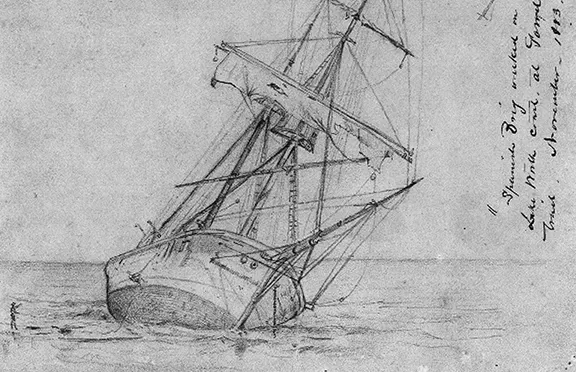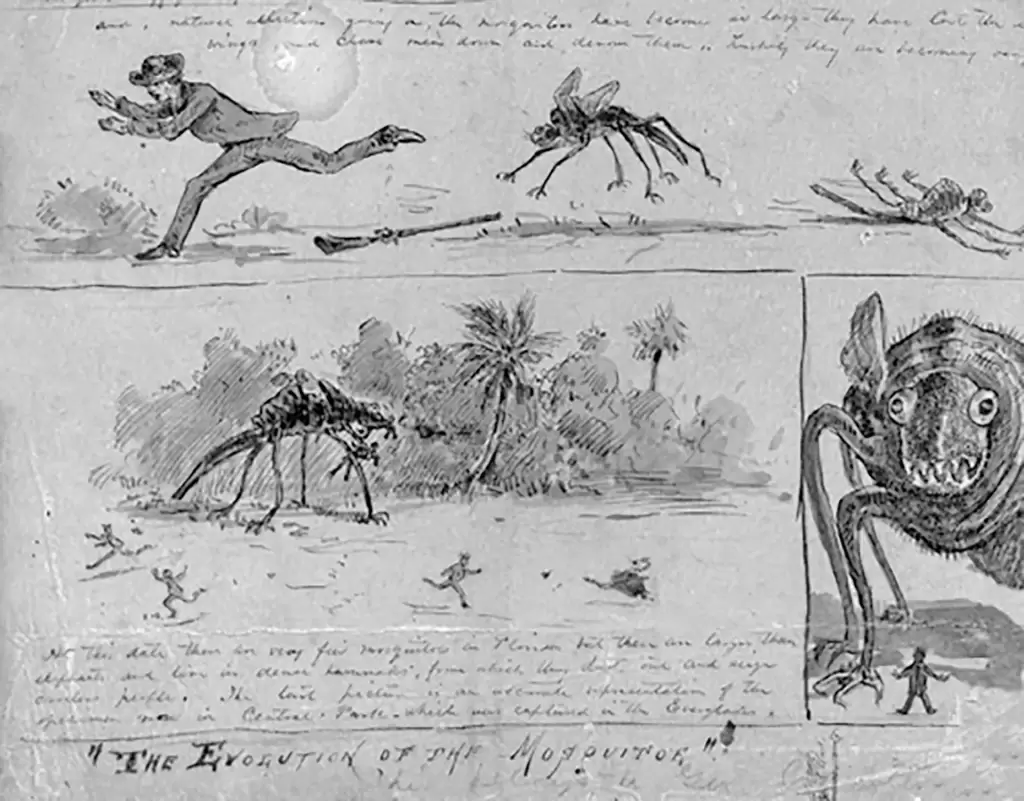The Victor Wreck
The 1872 wreck of the Victor, en route from New York to New Orleans, was an example of how the early settlers benefited from others’ bad fortune. When the steamer drifted ashore in a storm off Jupiter, lighthouse keeper James Armour and his assistants, Charles Carlin and Hannibal Pierce, brought all the passengers and crew to safety and signaled another ship to pick them up. Hannibal’s son Charlie later wrote:
Father returned at half past eleven, but Captain[s] Armour and Carlin remained, busy picking up the goods that came piling in on the beach. . . . I went to look down the river to see if there was anything to report. The tide was coming in on a full flood and water was full of wreckage of all kinds that had washed in through the inlet.
On the east side of the dock, a dry goods box and a big Saratoga trunk had grounded, and barrels and boxes of every description were floating by me. I flew back to the house and between gasps told father. …
He pushed out in Capt. Armour’s little catboat, Kate, after some of the stuff that was floating toward the Indian camp; at the moment of pushing away from the dock an immense box and trunk came floating past. He got a line fastened to it and hauled it onshore. This carton, when opened later, was found to contain 50 men’s suits.
After landing the big box, he saw two Indians trying to get a large container into their canoe. He sculled up alongside and told them it belonged to him; they gave it up without protest or hesitation as there were too many other things floating in the river. … Father said he knew as soon as he came near that it was a sewing machine . . . and mother used it for many years.Charlie Pierce
Bugs
Outside the pioneers’ homes, the air was thick with mosquitoes and other insects. Many settlers burned a smudge pot, or smoking fire, day and night to ward off the unwelcome guests. To keep insects off their bodies, settlers wore long clothing and wrapped newspaper around their arms. Some cut palmetto leaves to use as fly swatters. Others kept palm-leaf brooms on the porch to brush insects off themselves and the door before entering the house. Bugs were a memory that pioneers carried the rest of their lives as they recalled during interviews in 1962.
Charles Pierce: “None of the doors and windows of our houses had screens to keep out the swarms of mosquitoes and sand flies.… Light would attract the mosquitoes, so we spent our evenings after supper in the dark.”
Edith Miller: “Mosquitoes? Oh, I used to make screens to go on the hats, and oh dear, yes!”
Sara Moses Dean: “The mosquitoes were like a cloud, lots of them. Oh, they blotted out the sun.”
Anna Fremd Hadley: “Oh! It was terrible. … Mr. Flagler [our landlord] had our house screened securely, but even so. The gnats were so bad, too, and they could come right through your screen. They used to have what they called “mosquito powder” that they burned to keep ‘em out. Very offensive.”



